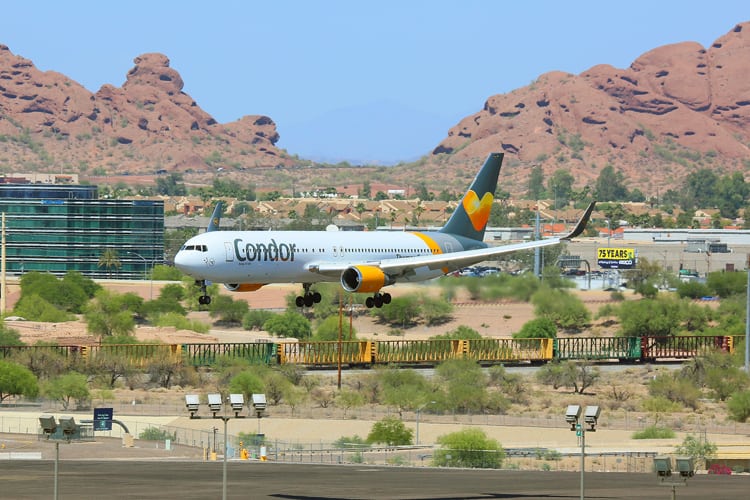$69.5 million will be invested in Arizona airports from the bipartisan Infrastructure Investment and Jobs law led by Senator Kyrsten Sinema and shaped by Senator Mark Kelly.
“Arizona’s airports serve as economic engines for our state. Our bipartisan infrastructure law directly invests in our airports, boosting tourism, creating jobs, and expanding economic opportunities for Arizonans,” said Sinema, Chair of the Senate Aviation Safety, Operations, and Innovation Subcommittee.
READ ALSO: Sinema ranked most bipartisan Senate Democrat
“Our airports are vital economic drivers for our state. Today’s funding from the Bipartisan Infrastructure Law that I helped negotiate will support necessary upgrades and modernization projects at our airports that will fuel job growth, boost tourism, and help our economy grow,” said Senator Kelly.
Sinema led bipartisan Senate negotiations with Republican Senator Rob Portman of Ohio that included Senator Kelly and senators from both parties. As Chair of the Senate Aviation Subcommittee, Sinema ensured that the bipartisan Infrastructure Investment and Jobs law includes significant resources for major upgrades to every airport in the state, and airports across the country. This historic investment will create jobs, improve passenger safety, boost tourism, and ensure Arizona continues to lead the aviation industry.
The bipartisan Infrastructure Investment and Jobs law invests $15 billion in priority projects at every airport in the United States. Of this funding, Arizona airports are expected to receive a total of at least $360 million over the next five years. Such upgrades would include: runways and taxiways, safety upgrades, terminal development projects, noise mitigation, and multimodal transportation. This funding program provides flexibility for airports to address their specific needs, and is formula-driven, so the funds will go directly to the airports. The bipartisan Infrastructure Investment and Jobs law also provides $5 billion in competitive grants for terminal development and other landside projects. These resources ensure terminal projects at all types of airports, including small hub airports, nonhub, and nonprimary airports will receive funding — guaranteeing that communities of all sizes benefit. Additionally, the bipartisan Infrastructure Investment and Jobs law invests an another $5 billion in grants for strengthening Air Traffic Control towers and infrastructure — much of which is decades-old and requires upgrades to house new equipment to better keep American travelers safe.
The bipartisan infrastructure law was supported by groups including The U.S. Chamber of Commerce, Business Roundtable, The National Association of Manufacturers, The AFL-CIO, The National Retail Federation, The Bipartisan Policy Center, North America’s Building Trades Unions, the Outdoor Industry Association, The American Hotel and Lodging Association, The National Education Association, as well as hundreds of mayors across all 50 states.




